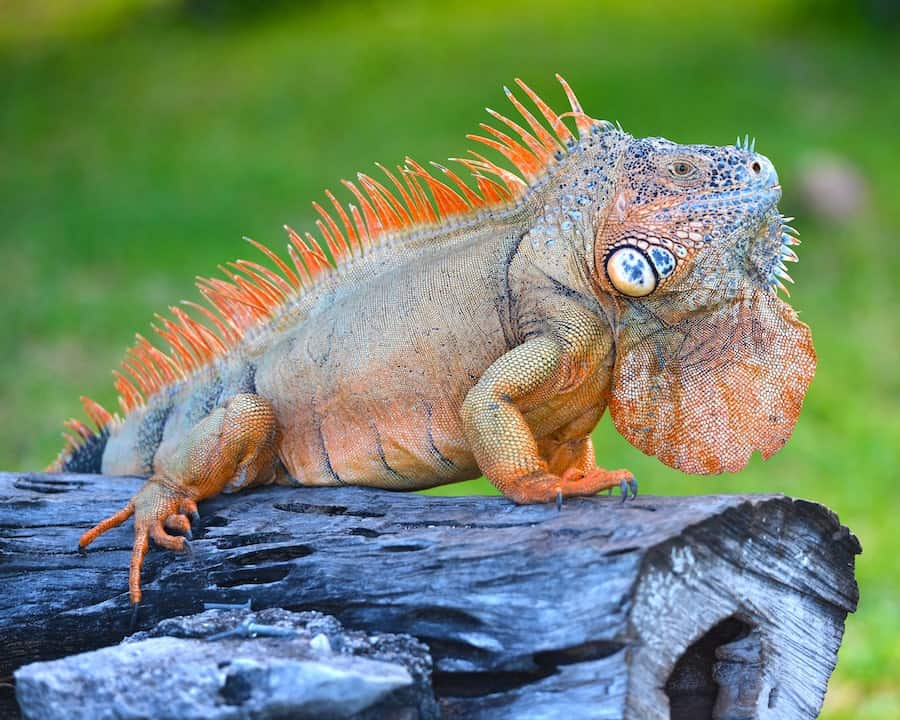For those with pet iguanas or who live near an area where iguanas run free, keeping your dog safe is a top priority. Some people mistakenly believe iguanas pose no threat to their canine companion because of the smaller size. However, the truth is much grimmer.
Iguanas can hurt and, in some cases, kill dogs due to their razor-sharp teeth and nails which can introduce harmful bacteria into a canine’s bloodstream. Although unlikely to be fatal, iguanas can and will tail whip a dog if they feel threatened.
Understanding how Iguanas can pose a threat to dogs is the first step towards preventing an unfortunate event. If you happen to own a pet iguana, keeping both animals away from each other is going to be your best route to ensuring both animals’ safety and well-being.
Yes, Iguanas Can Harm Your Dog

Although iguanas pose a relatively low harm risk for humans, the same can’t be said for our canine companions.
Iguanas boast around 120 razor-sharp, serrated teeth and a powerful bite that can deeply penetrate through the skin and into the underlying tissue.
As I’ve mentioned before on this blog, I’ve owned iguanas in the past, and have been bitten. Their teeth are so sharp that you can’t even feel them penetrating the skin.
However, because an iguana bite is likely to tear the skin, harmful bacteria can easily enter the bloodstream.
Unlike humans, most dogs have an extra layer of protection thanks to their fur. Should they find themselves face to face with an iguana due to curiosity and heightened sense of smell, the coat may prevent the iguanas teeth from breaking the skin.
Unfortunately, the same cannot be said of the dog’s face, where there is less fat and fur to provide protection.
One of the biggest threats from an iguana bite is the botulism toxin, which quickly attacks the nervous system.
Botulism hinders communication between the dog’s muscles and nerves, rendering it difficult to walk or stand, and in extreme cases, even causing paralysis.
The effects of this devastating toxin generally begin to show within one or two days of contact with the iguana, and can last around a week.
Signs of botulism include:
- Difficulty chewing
- Progressive lethargy
- Difficulty walking
- Impaired Vision
If full paralysis occurs, your dog may require intubation, and in rare cases, euthanasia may be the most human option.
It is important to note that it’s not only iguana bites that can introduce this dangerous toxin, but scratches as well.
Since the toxin lives on their skin, any contact resulting in an open wound or ingestion (if the dog bites the iguana) puts the canine at risk and must be monitored closely for an adverse reaction.
Are you wondering if iguanas are overall dangerous animals? Check out this post I wrote called: Are Iguanas Dangerous? Not Your Average Pet
How to Keep Your Dog Safe From Pet Iguanas
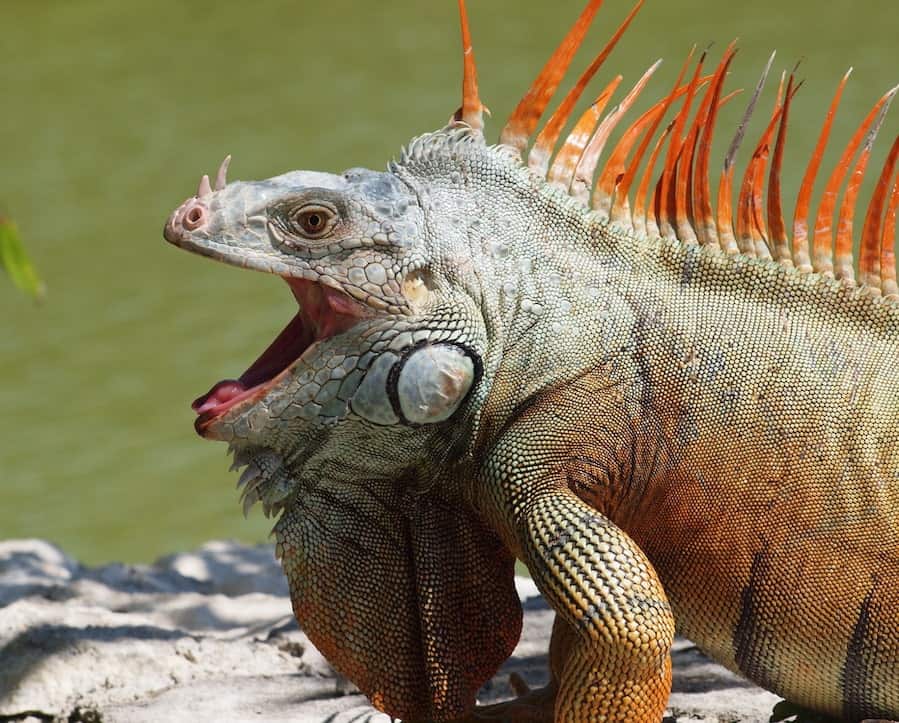
If you have a pet iguana and dog, protecting each of them should be your top priority.
Therefore, here are some basic guidelines which you can follow if you wish to protect your dog from a harmful iguana bite or scratch.
It would also help to learn the signs that an iguana is angry, which you can read about in this post I wrote titled, 7 Signs An Iguana is Mad: Ignore At Your Peril.
Never leave Your Iguana Unattended
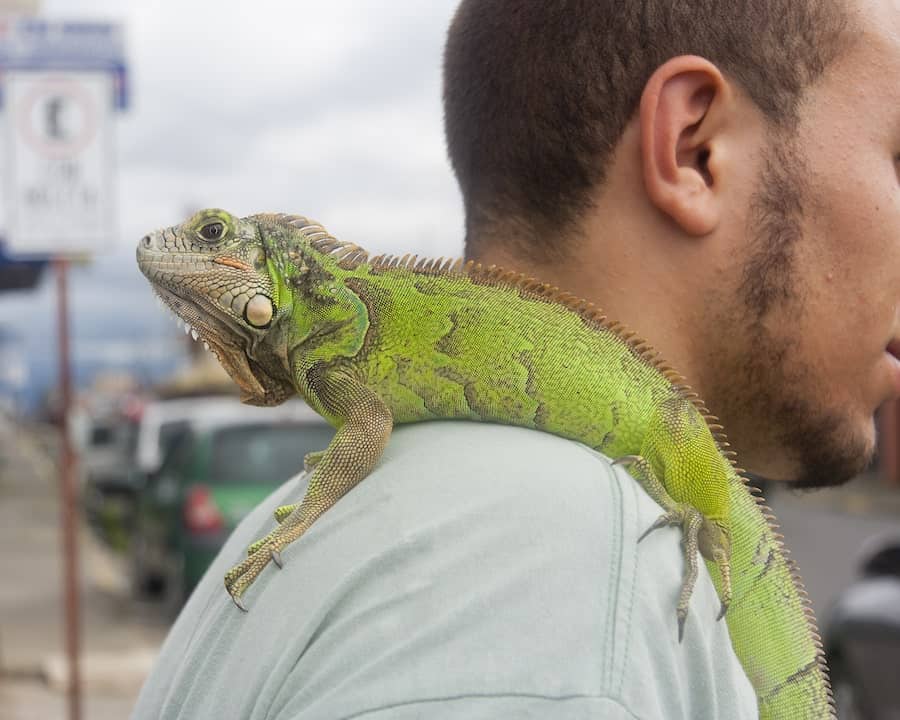
Keeping your iguana safely locked in its enclosure is one of the best ways to protect both of your pets.
Iguanas enjoy the warmth and comfort provided by their cage, and don’t require full access to your home.
Allowing them to wander around unsupervised could spell disaster for your dog and put your lizard at unnecessary risk.
If you take them out of their enclosure, always keep a watchful eye on them and consider putting your dog in another room for an added measure of safety.
Train Your Dog To Avoid Your Iguana
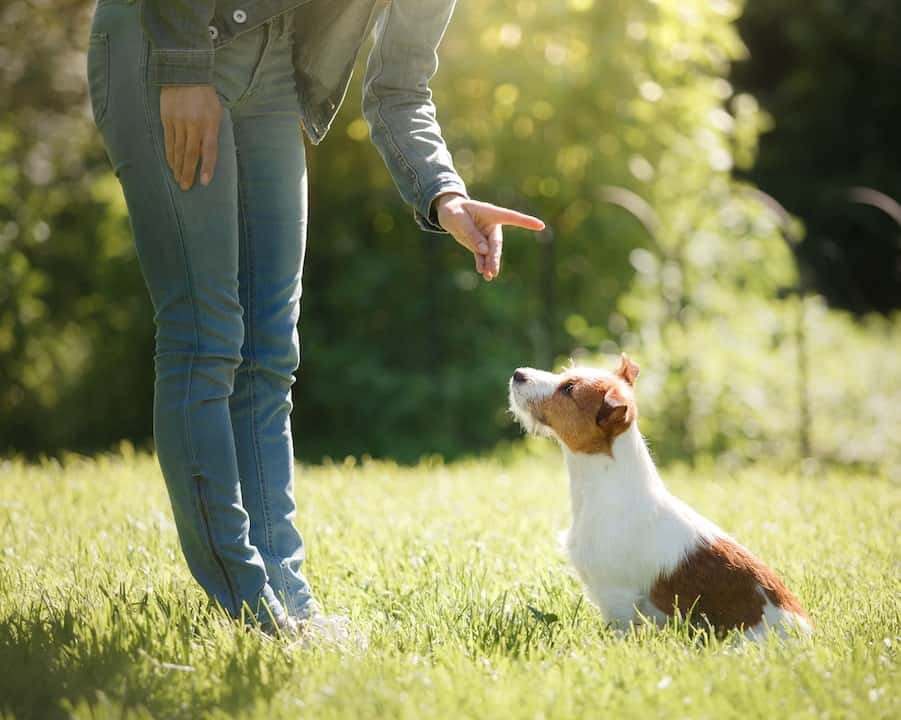
While iguana’s trainability is up for debate (some owners swear they’ve trained their lizard while others are adamant it’s impossible), it’s common knowledge that dogs are one of the most trainable pets.
Training your dog to steer clear of your iguana is another way of ensuring their safety. Depending on your dogs breed, age, and previous training level, this process may be fast and simple or more complicated.
Don’t rush the process, stay patient and persistent. Eventually your dog will realize your iguana isn’t a toy and will keep their distance on their own.
Use Common Sense Practices
Common sense is your best friend when it comes to keeping your beloved pooch safe, so don’t underestimate its importance.
If you feel like your dog is at risk, remove them from the area, secure it, and allow them back in.
Designate a time for handling your iguana when your dog isn’t around, and if you feel whether your lizard or dog is in harms way, immediately remove them from the area.
Leash Your Dog

If you’re walking your dog, keep them on a leash to prevent them from running after or attacking any iguanas you may encounter.
Many communities already have leash laws in place, as it’s an excellent way to keep your dog and others safe.
How to Keep Your Dog Safe From Wild Iguanas
Certain areas like south Florida have a bursting wild iguana population, which is becoming a nuisance to those living in the region.
While local governments are taking steps to lower the number of wild iguanas, its crucial that residents take the necessary steps to keep their dogs safe.
Both large and small dogs are at risk for botulism poisoning from an iguana attack, so all pet owners must take precautions against this nightmare scenario, such as:
- fencing your property
- using iguana repellents
- aforementioned dog training
- don’t leave fruit or vegetables out in the open
Should you encounter a feral iguana and your curious dog approaches it, you can expect to hear a hiss. You can read more about why iguanas hiss and what to do about it by checking out this I wrote called: Why Iguanas Hiss & What to do About it.
What to do if Your Dog Ate an Iguana?
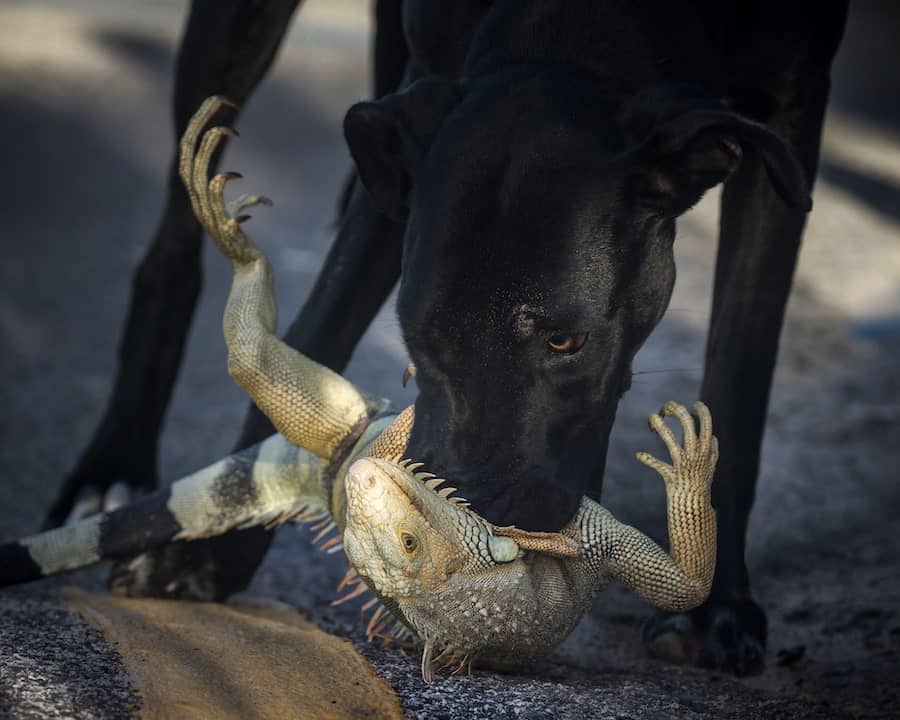
If you suspect or know that your dog ate an iguana, call your vet immediately, as iguanas can contain bacteria that can cause serious illness. If your dog ate a feral iguana, the odds of contracting a harmful bacteria increases.

